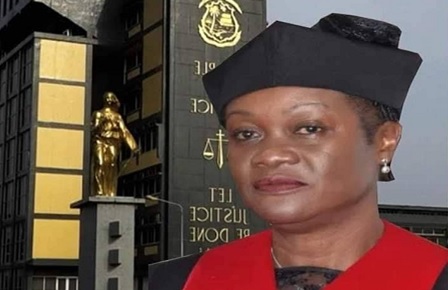The ongoing leadership crisis in the House of Representatives of Liberia has reached a critical juncture following the Supreme Court’s intervention on November 25, 2024. The situation stems from the removal of Speaker J. Fonati Koffa by a majority bloc within the House and their subsequent election of Richard N. Koon as the new Speaker. Koffa has disputed this decision, claiming that the majority bloc failed to abide by legal procedures when they voted him out of office. The Supreme Court’s order mandated all parties involved to revert to their status as of October 15, 2024, essentially restoring Koffa’s position until the court can resolve the matter.
Amidst this turmoil, Koffa filed a writ of mandamus, arguing that his colleagues’ actions were illegal and violated both the procedures established within the House and the Constitution of Liberia. This legal move calls for the High Court to compel the majority bloc to recognize Koffa as the legitimate Speaker, emphasizing that the process leading to his removal did not follow the legally required protocols. The Supreme Court, in its ruling, required that both the Minister of Justice and the affected members of the House submit their official responses regarding the case before a scheduled court session on November 26, 2024.
The dramatic series of events began with the majority bloc’s vote to replace Koffa, who had previously won the speakership in January 2024. Koon, a representative who had previously lost to Koffa, was declared the new Speaker. The immediate aftermath saw Koffa continue to assert his authority through social media, underlining his belief that no legitimate changes had occurred and that he remained the duly elected Speaker of the House. This backdrop of fierce loyalty and conflict illustrates the entrenched divisions within the legislature, as both sides claim legitimacy in their actions.
In his legal filings, Koffa pointed out that the absence of the majority bloc during vital legislative sessions has led to a constitutional impasse. He cited instances where their refusal to participate hindered the House’s ability to meet quorum requirements necessary for conducting official business, which is particularly troubling given the pressing need to pass the national budget for the fiscal year 2025. Koffa’s legal argument hinges on the assertion that the majority bloc’s actions are not only unconstitutional but detrimental to the legislative process and governance of the country.
The majority bloc’s position, encapsulated in a resolution signed by 50 Representatives, argued that Koffa’s removal was justified based on an established report from a specialized committee. This resolution was formalized during a session presided over by the Acting Chief Clerk, indicating a structured approach to the leadership change, at least from their perspective. This highlights the contentious nature of the leadership struggle, as both factions believe they are operating within their rights according to legislative procedure.
As Liberia’s political landscape hangs in the balance, the Supreme Court’s decision will undoubtedly play a crucial role in determining the future functioning of the House of Representatives. The court’s forthcoming deliberations aim to address the competing claims of legitimacy and restore order within a legislature focused on critical issues affecting the nation, including budgetary laws and governance practices. The outcome not only impacts the individuals involved but also influences the broader political stability in Liberia, emphasizing the importance of lawful governance and adherence to Constitutional frameworks within the country.


